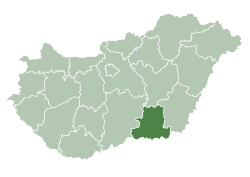Kiszombor
Kiszombor is a more than 800 years old village in Csongrád County, in the Southern Great Plain region of southern Hungary.
Kiszombor | |
|---|---|
Large village | |
Rónay big mansion | |
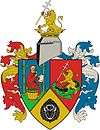 Coat of arms | |
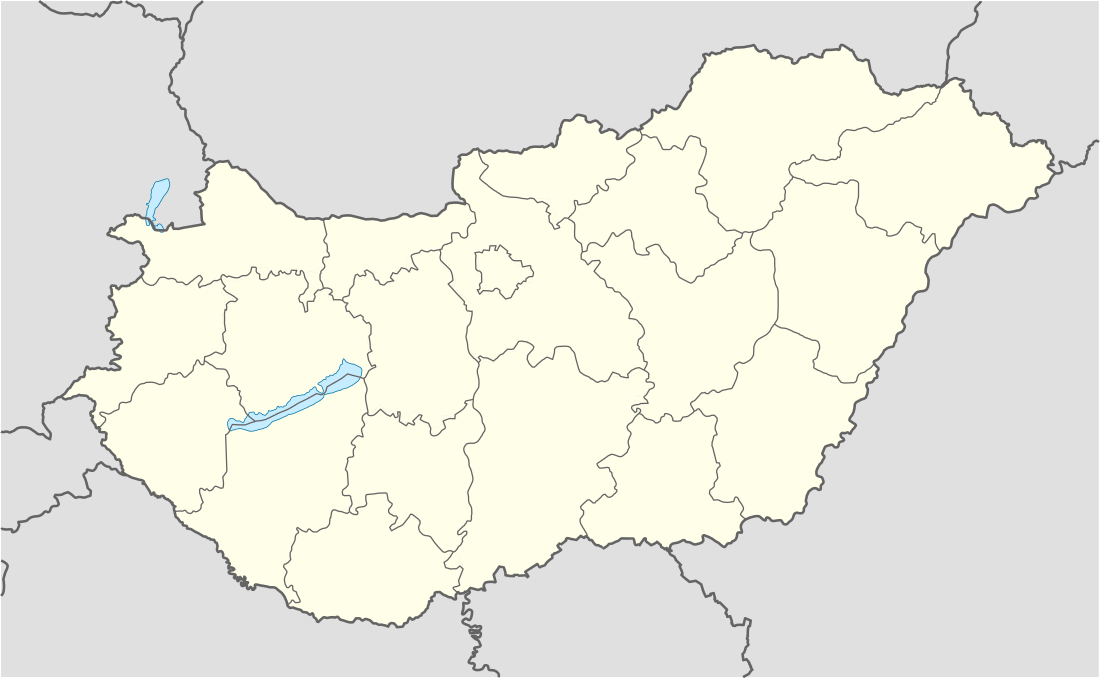 Kiszombor Location in Hungary | |
| Coordinates: 46°11′10″N 20°25′40″E | |
| Country | |
| County | Csongrád |
| District | Makó |
| Area | |
| • Total | 65.81 km2 (25.41 sq mi) |
| Population (1 January 2015) | |
| • Total | 3,795 |
| • Density | 57.12/km2 (147.9/sq mi) |
| Time zone | UTC+1 (CET) |
| • Summer (DST) | UTC+2 (CEST) |
| Postal code | 6775 |
| Area code | (+36) 62 |
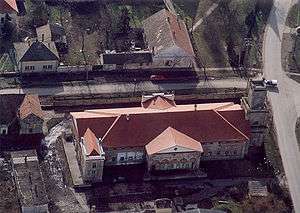
Geography
It covers an area of 65.81 km2 (25 sq mi) and has a population of 3795 people (2015). It is an agricultural village, near the Maros River.
There is a border-crossing point into Romania near the village, where the first village is Cenad.
There is a village-festival on the third weekend of September every year. A number of Hungarian artists appear, play, sing, dance and so on.
Sightseeing for visitors
In the village a number of old architectural heritage from the Romanesque art to Romantic art can be seen.
Churches
Rotunda (Szent István tér)
The rotunda was built in the 12th century with a circular ground plan outside and with sixfold arched inside. There are only 3 such churches in Europe, all 3 in the late Kingdom of Hungary (and in the Carpathian Basin), in the east part of it: Kiszombor, Gerény and Karcsa. Relatives of this rotunda-type could be found in the Caucasus. The frescos were painted in the 14th century and 18th century. In 1776 a rectangular church was attached to the rotunda, later in 1910 a big Roman Catholic Church was attached to it, the rotunda used to be their chapel.
 Rotunda, Kiszombor
Rotunda, Kiszombor- Inside, Rotunda
- Frescos, inside, Rotunda
 Details, inside, Rotunda
Details, inside, Rotunda Fresco, inside, Rotunda
Fresco, inside, Rotunda
Roman Catholic Church
It was built in Neoromanesque art in 1910 after demolishing the old church in Baroque art.
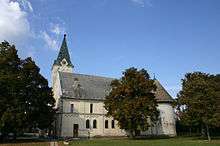 Roman Catholic Church, Kiszombor
Roman Catholic Church, Kiszombor
Mansion
Rónay big mansion (Móricz Zsigmond u. 1-3.)
It was built in Romantic art around 1858. There is a 3-storey rampart-like tower on the short west side. Its park was destroyed during the Communism in Hungary.
 Rónay big mansion, Kiszombor
Rónay big mansion, Kiszombor South side, Rónay big mansion, Kiszombor
South side, Rónay big mansion, Kiszombor North side, Rónay big mansion, Kiszombor
North side, Rónay big mansion, Kiszombor
Rónay mansion (Szegedi u. 1/B)
The mansion was built around 1835 in Classical art. Its designer is unknown. The building was restored in 2005, showing its old beauty, and operates as a restaurant under the name Rónay kúria.
 East side, Rónay mansion, Kiszombor
East side, Rónay mansion, Kiszombor West side, Rónay mansion, Kiszombor
West side, Rónay mansion, Kiszombor Granary, Rónay mansion, Kiszombor
Granary, Rónay mansion, Kiszombor
Rónay Tibor mansion (Szent István tér 2.)
 East side, Rónay Tibor mansion, Kiszombor
East side, Rónay Tibor mansion, Kiszombor West side, Rónay Tibor mansion, Kiszombor
West side, Rónay Tibor mansion, Kiszombor
Granary
Granary with portico (Óbébai u. 2.)
The building in Classical art was built around 1835. This granary designed and constructed with style is unique in Hungary.
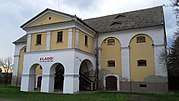 Multi-storey granary with portico, Kiszombor
Multi-storey granary with portico, Kiszombor Multi-storey granary with portico, Kiszombor
Multi-storey granary with portico, Kiszombor
References
- Aradi N. (Ed.): A művészet története Magyarországon. (The History of Arts in Hungary). Gondolat, Budapest
- Fülep L. (Ed.): A magyarországi művészet története. (The History of the Hungarian Arts). Budapest
- Gerevich T.: Magyarország románkori emlékei. (Die romanische Denkmäler Ungarns.) Egyetemi nyomda. Budapest, 1938.
- Gerő L. : Magyar műemléki ABC. Budapest, 1984
- Gervers-Molnár, V. (1972): A középkori Magyarország rotundái. (Rotunda in the Medieval Hungary). Akadémiai, Budapest
- Henszlmann, I. (1876): Magyarország ó-keresztyén, román és átmeneti stylü mű-emlékeinek rövid ismertetése, (Old-Christian, Romanesque and Transitional Style Architecture in Hungary). Királyi Magyar Egyetemi Nyomda, Budapest
- Marosi E.: A román kor művészete, (Art of the Romanesque Ages). Corvina, Budapest, 1972, ISBN 963-13-2000-6
- Szilágyi A. (2008): A Kárpát-medence Árpád-kori rotundái és centrális templomai. (The Rotunda and Central Building Churches in the Carpathian Basin.) Semmelweis Kiadó, Budapest
External links
![]()
- Official website in Hungarian
- Restaurant Rónay kúria
